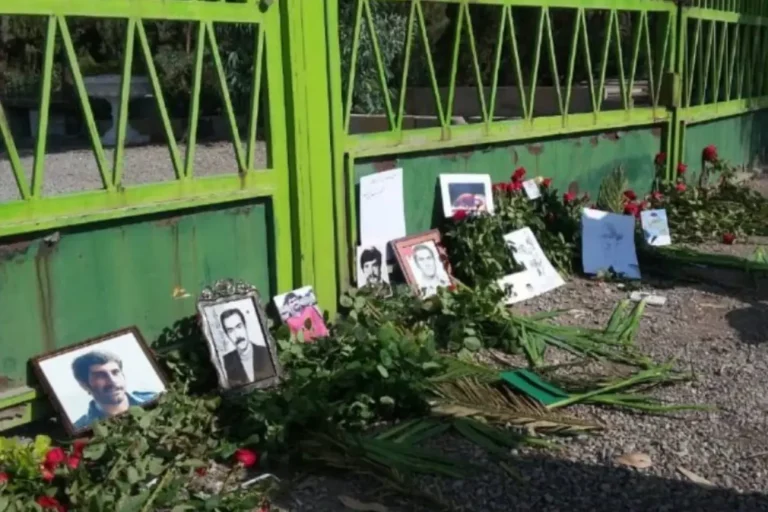By Azin Mohajerin (Source: Human Rights Watch)
“We are not looking for revenge, we came here for justice.”
Those were the words of Mohammad Azami, a former prisoner in Iran, who lost 14 members of his family in Iran’s mass execution of prisoners during the summer of 1988. Today, Azami heard the court issue its guilty verdict against Hamid Noury, an Iranian national, for crimes, including war crime and murder, committed in 1988. The judges sentenced Noury, an assistant prosecutor during these mass executions, to life in prison.
In July 1988, Ayatollah Rouhollah Khomeini, Iran’s Supreme Leader at the time, issued a fatwa (religious order) designating a committee to review the cases of detained members of the banned Mojahedin-e Khalq Organization (MKO), an armed opposition group. The order also called for the execution of prisoners who remained “steadfast” in their support of the group. That summer, authorities summarily executed thousands of political prisoners from MKO supporters and other leftist political parties.
For decades, families of victims and survivors of the mass executions have sought justice. In June, Human Rights Watch published analysis arguing that these mass executions amount to crimes against humanity. The document examines evidence gathered by survivors and rights groups pointing to senior officials implicated in overseeing these crimes, and possible avenues for justice, including through universal jurisdiction, where crimes in one country are tried in another.
While many avenues for prosecuting heinous crimes in Iran are blocked, the principle of universal jurisdiction opens a pathway for survivors. The Swedish trial marks the first time an Iranian official accused of participating in 1988 mass executions has appeared before a judicial body, giving a unique opportunity for survivors to testify in a court of law. Over nine months, dozens of survivors previously imprisoned due to membership in banned organizations testified about their detention conditions, torture they suffered, and summary executions of prisoners they witnessed.
Iranian officials have defended these executions on numerous occasions. On July 10, Mohmmad Nayyeri, a member of the committee that allegedly oversaw the executions, said in an interview that “it [the time of the executions], was a unique situation, and if it was not for Ayatollah Khomeini’s solid decision, we wouldn’t have had security today.”
Today, victims of this dark chapter in Iran’s contemporary history have achieved a small step towards justice.



